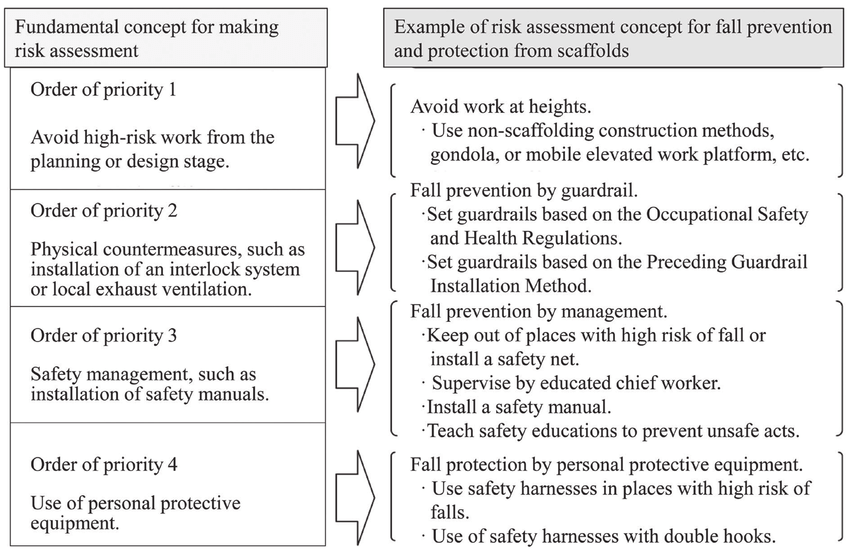The Ultimate Guide To Dementia Fall Risk
Table of ContentsFacts About Dementia Fall Risk UncoveredExamine This Report about Dementia Fall RiskThe Greatest Guide To Dementia Fall RiskDementia Fall Risk - The Facts
A loss risk analysis checks to see just how likely it is that you will drop. The assessment typically consists of: This consists of a series of concerns about your overall health and if you have actually had previous drops or troubles with equilibrium, standing, and/or strolling.Treatments are suggestions that may decrease your danger of dropping. STEADI includes 3 steps: you for your risk of dropping for your danger elements that can be improved to attempt to avoid falls (for instance, balance troubles, damaged vision) to decrease your risk of dropping by utilizing reliable techniques (for instance, offering education and resources), you may be asked numerous inquiries including: Have you dropped in the past year? Are you fretted concerning falling?
Then you'll sit down once more. Your copyright will check exactly how long it takes you to do this. If it takes you 12 seconds or even more, it might suggest you go to greater threat for an autumn. This test checks strength and balance. You'll being in a chair with your arms crossed over your breast.
The settings will certainly get tougher as you go. Stand with your feet side-by-side. Relocate one foot halfway onward, so the instep is touching the huge toe of your various other foot. Relocate one foot completely before the various other, so the toes are touching the heel of your other foot.
Excitement About Dementia Fall Risk
A lot of falls occur as an outcome of numerous contributing elements; therefore, managing the threat of dropping begins with identifying the variables that add to fall threat - Dementia Fall Risk. A few of the most pertinent danger factors consist of: History of previous fallsChronic medical conditionsAcute illnessImpaired gait and equilibrium, lower extremity weaknessCognitive impairmentChanges in visionCertain risky drugs and polypharmacyEnvironmental factors can likewise raise the threat for falls, including: Insufficient lightingUneven or damaged flooringWet or unsafe floorsMissing or damaged hand rails and order barsDamaged or poorly equipped devices, such as beds, mobility devices, or walkersImproper use of assistive devicesInadequate supervision of the individuals residing in the NF, including those who exhibit hostile behaviorsA successful fall risk management program calls for a complete clinical analysis, with input from all members of the interdisciplinary group

The care strategy learn the facts here now should likewise include interventions that are system-based, such as those that advertise a secure atmosphere (appropriate lights, handrails, order bars, and so on). The performance of the interventions must be assessed periodically, and the treatment strategy revised as necessary to mirror modifications in the autumn danger evaluation. Executing an autumn threat monitoring system utilizing evidence-based best method can reduce the prevalence of drops in the NF, while restricting the potential for fall-related injuries.
The smart Trick of Dementia Fall Risk That Nobody is Discussing
The AGS/BGS standard suggests evaluating all grownups aged 65 years look at these guys and older for fall threat every year. This testing consists of asking clients whether they have dropped 2 or even more times in the previous year or looked for clinical interest for an autumn, or, if they have actually not dropped, whether they really feel unstable when walking.
Individuals who have fallen when without injury ought to have their equilibrium and stride examined; those with stride or balance irregularities ought to receive extra analysis. A history of 1 fall without injury and without stride or equilibrium problems does not warrant more evaluation past continued annual loss threat screening. Dementia Fall Risk. A fall threat assessment is called for as component of the Welcome to Medicare examination

Some Known Details About Dementia Fall Risk
Documenting a falls background is one of the top quality signs for autumn prevention and management. copyright medicines in particular are independent forecasters of drops.
Postural hypotension can often be alleviated by minimizing the dose of blood pressurelowering medicines and/or quiting medications that have orthostatic hypotension as a negative effects. Use of above-the-knee assistance pipe and copulating the head of the bed elevated web link may additionally lower postural reductions in blood pressure. The advisable aspects of a fall-focused physical exam are displayed in Box 1.

A TUG time higher than or equivalent to 12 secs recommends high autumn risk. The 30-Second Chair Stand test assesses reduced extremity stamina and equilibrium. Being unable to stand up from a chair of knee height without utilizing one's arms indicates increased autumn danger. The 4-Stage Equilibrium test analyzes fixed balance by having the person stand in 4 placements, each progressively a lot more challenging.
Comments on “The Greatest Guide To Dementia Fall Risk”